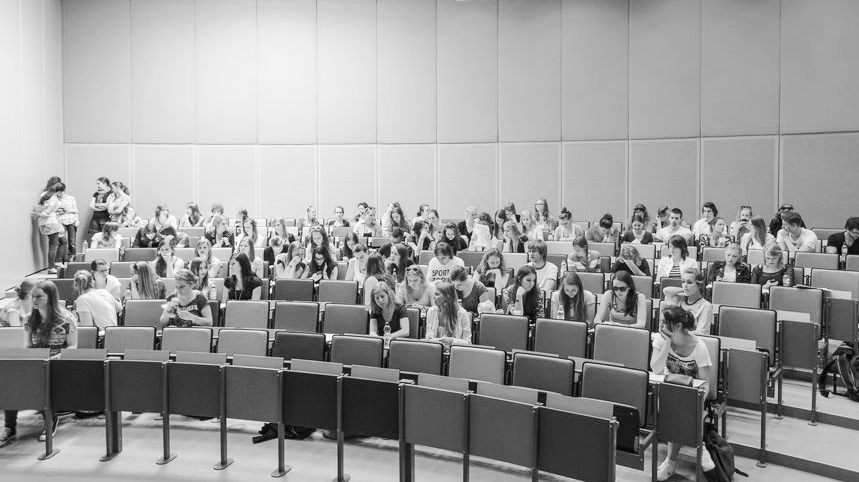Teachers are enthusiastic. But they have a lot of questions.
The ministry of Education, Culture and Science (OCW) assumes that nearly everyone in the Netherlands will have been vaccinated by the start of the 2021/2022 academic year and has asked the universities to organize in-person education with maximum group sizes of 75 people per classroom. The ministry assumes that social distancing will no longer be required. WUR is basing its preparations for next academic year on this OCW scenario, known as the basis scenario.
In this scenario, students will have to be in Wageningen to take classes. Teachers will no longer have to offer online alternatives to campus education. Students will not have to show a negative self-test or proof of vaccination to attend classes, except for fieldwork excursions that take several days. The limit of 75 people per room will apply at all times, except during exams.
Two scenarios
WUR is exercising caution in case the coronavirus situation turns out to be less positive than is currently anticipated. So the timetablers have been asked to prepare two timetables: one for the basic scenario and one for the fall-back scenario.
In the fallback scenario, social distancing is still necessary, which has an impact on the capacity of the classrooms. Since timetabling of period 1 is already in full swing, and timetabling for period 2 starts on 15 June, course coordinators are being asked what they need in terms of time and space, both in the basis scenario and in the fallback scenario. When preparing their courses, teachers can assume that the basis scenario will apply, so they don’t have to prepare their courses for both scenarios.
Questions and concerns
Dean of education Arnold Bregt en rector magnificus Arthur Mol presented WUR’s education guidelines for period 1 of next academic year to teachers who will be teaching in that period on Tuesday 11 May. At a meeting on Microsoft Teams, many teachers expressed their enthusiasm for teaching on campus again in period 1: in a poll, 86 teachers said they are looking forward to teaching on campus, while 10 teachers were not so keen to do so. But as well as enthusiasm, there were a lot of questions.
For example: how logical is it not to offer alternative online education if you do ask students to stay away from class if they are feeling unwell? And what if one of the students tests positive after a class? There were questions about the exams, too, which are going to be held on campus again. Such as whether the exam software Ans can be used to administrate the exams digitally via students’ laptops. That is being worked on and hopefully it will be possible, replied Bregt.
Bigger groups
Most of the questions came from teachers who usually teach groups larger than 75. What are you supposed to do about courses with more than 75 students on them? Just divide them over several classrooms? Then you need more teaching staff. So, go online after all?
‘Isn’t it better to agree that all educational activities involving more than 75 people will have to be run online?’ suggested one teacher in an effort to simplify the guidelines. Bregt: ‘We want to give teachers the flexibility to decide for themselves whether to teach the course entirely online or in a hybrid form.’ One idea for a hybrid form for lectures to large groups would be to get students to sign up to attend the lecture on campus, while the rest of the students can attend via an online livestream that has interactive options.’
But that doesn’t solve the problem for practicals with groups larger than 75, says another teacher. Mol: ‘The labs for practicals can either take no more than 75 students, or they can be split into rooms for less than 75 students.’ That does not immediately solve the problem facing the teacher of a practical. However, Mol ends on a positive note: ‘In spite of the challenges of timetabling, like the limit of 75 people, anything is better than yet another semester with limited practicals. We’ll come up with a solution eventually.’

 A lecture theatre in Orion. Photo Joris Schaap
A lecture theatre in Orion. Photo Joris Schaap